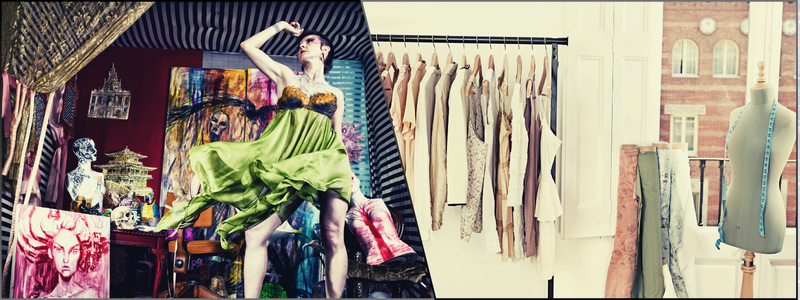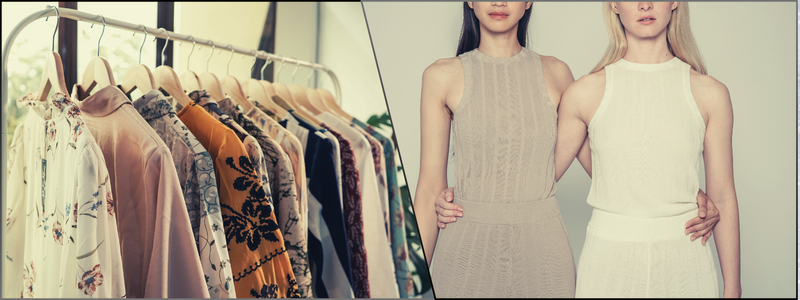This article explores 3D design technology and the benefits it provides for the fashion industry and product design and development services. As fashion brands and labels roll out new collections every season, one thing is sure: modern-day fashion now uses and relies on 3D technology. From major labels to small boutique brands and accessories and apparel designers, almost all members of the fashion industry are starting to discover and realize the value of 3D design technology in the creation and sales of products. This blog looks into the benefits of 3D design technology for product development services in the fashion industry.
 Table of contents
Table of contents
- Broader benefits of 3D design technology in the fashion industry
- Fashion shows 2.0
- Better scope for experimentation among designers
- Innovation
- Simplified sampling
- Sell fashion directly to fans
- Sustainable design
- 3D design technology outfits fashion designers with new sets of tools
- 3D design technology reshapes the fashion world's supply chains
- 3D design technology opens new fashion marketing dimensions
- How Cad Crowd can help
Broader benefits of 3D design technology in the fashion industry
Refrain from assuming that 3D is just about simple 3D CAD design software. The 3D technology available right now is based on sophisticated modeling and imaging tools that can produce almost photorealistic versions of fashion items, including handbags, dresses, and jewelry. The following are the broad benefits that you can enjoy when you use 3D design firms as part of your product development process:
RELATED: How 3D modeling services are changing the fashion industry
Fashion shows 2.0
Thanks to 3D technology, it’s now possible to step outside the boundaries of Fashion Weeks and runways. Designers can now market their designs directly to their target users through social media. Better yet, they can also take advantage of the Metaverse fashion.
Better scope for experimentation among designers
The world’s most talented and skilled fashion designers can easily transition from tablet or pen sketches to 3D models in a snap of a finger. It gives them an insight into how their creations will fit in actual models.
Innovation
3D technology is one of the best ways to explore up-and-coming tech trends, such as interactive ads, AE filters, and the Metaverse. Labels can establish new skills and prepare for future growth, staying ahead of their struggling competitors.
RELATED: What is the best clothing design software for 3D rendering & modeling apparel?
Simplified sampling
Fashion labels can use 3D fashion design services for shipping virtual samples to their retail partners and clients without producing physical prototypes. Using realistic textures and patterns can give a more precise idea of the appearance and feel of the apparel.
Sell fashion directly to fans
3D ads and viewers allow companies to showcase their designs and increase their conversion rates higher than the norm.
Sustainable design
Fashion has long been known for its relatively poor environmental record. With the significant reduction of waste, 3D technology can help address this problem, which makes clothes and apparel more environmentally friendly.
3D design technology outfits fashion designers with new sets of tools
The designer’s mind marks the beginning of fashion, which seems like a great place to start. Most still stick with sketches to breathe life into their ideas, transforming their designs into finished images set for factory production. Unfortunately, using this method to create images is usually inflexible, complex, and slow. Before the development of physical versions, there was no way to envision the appearance of garments on actual human bodies. It means that guesswork still dominates the process. Pattern making is a minefield, leading to wasted materials and time, allowing creators to try different styles and colors.
RELATED: Clothing 3D rendering cost, 3D modeling rates & design prices

The entire process can often result in longer lead times for creating new collections, not to mention the constant possibility of missing out on budding trends. However, there is still a better way. Autocad drafting and design professionals can completely change the situation for apparel brands. Fashion designers can now develop 3D representations of their dress and apparel virtual models to see how they will look. Pattern makers can use 3D fashion design software to experiment with different materials, textures, cuts, and colors.
They can also design lines of their fashion ideas for the retail partners to choose from. To improve things, they can do all these in just a matter of days rather than weeks. The 3D modeling process can also incorporate existing PLM or Product Lifecycle Management software for fashion design, allowing more efficient collaboration among teams. 3D designers, managers, marketers, and sustainability experts can present their input, resulting in higher-quality products and leaner production processes.
RELATED: CAD design and 3D modeling rundown
3D design technology reshapes the fashion world’s supply chains
Designers are just some fashion experts who can take advantage of 3D technology. This modern technology is also altering how fashion brands run their supply chains and logistics, offering slicker, more efficient, and more responsive ways to supply their customers with the designs they love and are looking for. Smaller fashion labels must always mediate with retailers to promote their designs and put their skills in the spotlight. 3D fashion design offers a way to provide realistic models of their newest creations.
This way, they no longer need to deliver and distribute prototypes or wait for significant events in the fashion world. It allows labels to cater to their primary partners and cut promotional costs simultaneously. Norlanka, a Sri Lanka-based footwear label, shows how it benefits smaller operators. They have been using fashion design software since 2018 to replace physical samples. This move helped make it through the pandemic when there was a large-scale explosion of online ordering.
The team behind the company promotes their creative designs worldwide with a click of a button, giving them an edge over their competitors. Fashion companies also pioneered ways for responding quickly to consumers using 3D fashion design software to develop more dynamic supply chains. The new start-up FINESSE, for example, exclusively uses rapid prototyping services to develop its garments that cater to the ever-changing market of Gen Z. Data analytics keep track of trends and provide data to designers. The designers will then use fashion design software to introduce new outfits on stream quickly.
RELATED: 3D Modeling services – factors affecting the speed of your project
It has also become possible to engage in on-demand marketing because of the reduced time to market, thanks to 3D design technology. The identical 3D prototypes can also be used immediately on the brand’s marketing efforts and social media channels, which further adds value to the process. It results in downright trendy apparel that went through efficient production and is ready to wear in just a matter of weeks after inception.
Another significant benefit of using 3D fashion designers is reducing the environmental footprint and cutting waste of fashion operations. The fashion industry has historically been a vital carbon emission producer and a massive user of limited resources. However, 3D design technology powers efficient logistics that help improve or even eliminate the situation.
RELATED: Sustainable product design tips for a healthy world
Waste management
Currently, around 35% of the materials that the fashion supply chains use only end up as waste. This figure can be significantly reduced by improving the efficiency of sampling and prototyping. Tools for fabric sourcing allow sampling materials and changing the pattern without using physical resources. 3D technology also allows retailers to make better decisions regarding their stock levels.
Son of a Tailor, a fashion label, revealed that 18.5% of garments are not even sold off, yet another colossal source of waste. The changes are not only common among niche companies. Even a big-name brand like Tommy Hilfiger has expressed its high-profile commitment to virtualize 100% of all its design work, with other iconic brands following suit.
RELATED: How to make a prototype for shoes, runners & sneakers with a design services company

3D design technology opens new fashion marketing dimensions
3D modeling also makes waves in the industry of direct fashion retail, offering new ways to present collections and tap into high-value customers. More and more brands are embracing 3D product viewers that allow customers to manipulate accessory and clothing models. It increases conversions and management rates while offering maximum information to arrive at educated purchases. This should significantly dent the return rates that reach an average of 25% to 45% in the fashion industry.
But 3D doesn’t just allow fashion retailers to provide 3D viewing. For example, Anifa Mvuemba, a Congolese designer, has taken advantage of Facebook fashion shows to promote her Hanifa label’s Pink Label Congo creations. Mvuemba always stages virtual events in which digital models showcase the 3D versions of her creative and colorful designs. She sees this approach as anti-elitist while being accessible to fans of everyday fashion.
RELATED: The advantages of CAD (computer-aided design) & 3D design software
Major brands are also tapping into the potential of 3D fitting rooms as they now offer customers different ways to try on clothes without the need to touch the physical products. It allows more convenient shopping while cutting return rates, a significant concern in the fashion sector. 3D printing design services is also rising in popularity, not just remotely but also in physical stores. Adidas set a precedent with their STRUNG trainers tailored to a particular foot. Ministry of Supply, another innovative apparel label, routinely uses 3D-knit printing to eliminate waste and enhance comfort—meanwhile, New Balance experiments with biometric scanning to develop customized insoles.
How Cad Crowd can help
Almost everyone in the fashion industry, from big names to dynamic smaller outfits, uses 3D design technology to compete and innovate. Cad Crowd can help you find the best professionals specializing in 3D design technology and are guaranteed to improve product development services.
